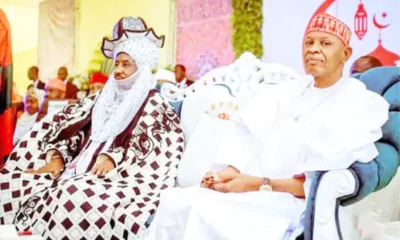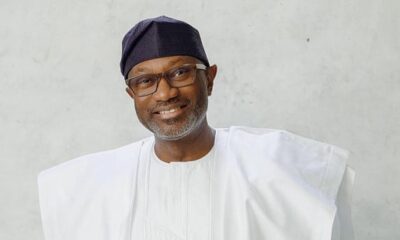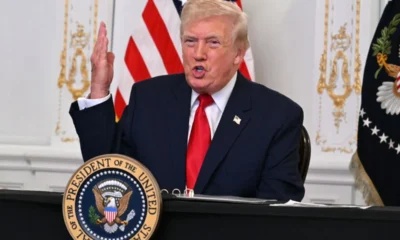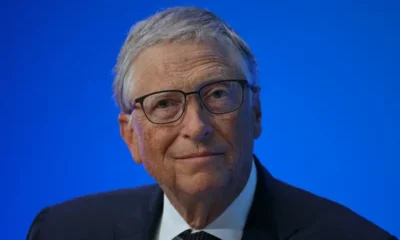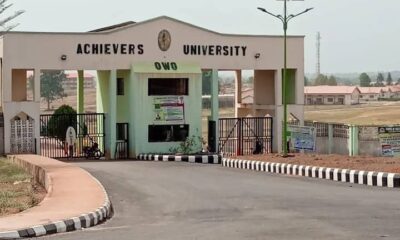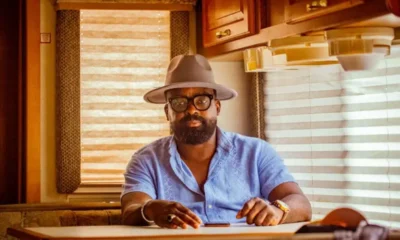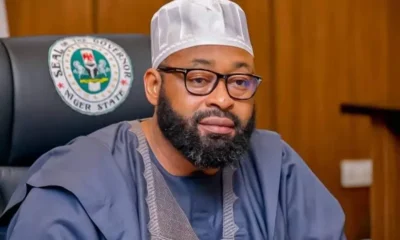News
Top ISWAP commander Julaibib killed in Borno – Military
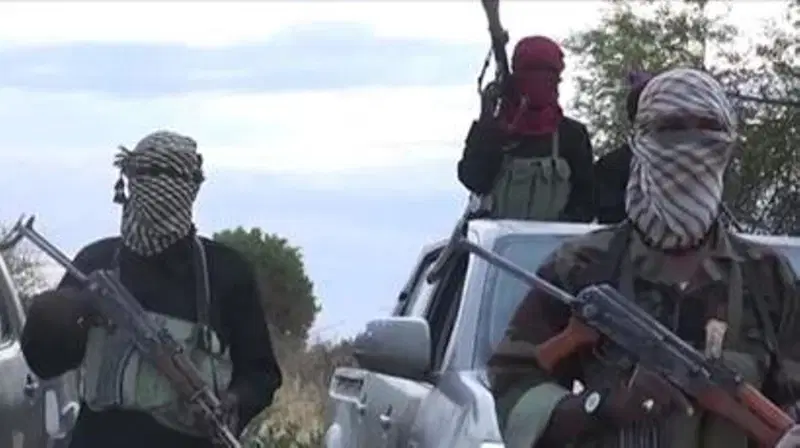
Troops of the Joint Task Force (North East) ‘Operation HADIN KAI’ (OPHK) have killed a notorious Boko Haram/ISWAP Commander (JULAIBIB), operating within the Gujba axis of the Timbuktu Triangle, during an encounter around Kimba, Damboa LGA of Borno State, on 30 January 2026.
These troops recorded multiple successes in Adamawa State after responding swiftly to a distress call from Barama community, Mubi North LGA, foiling an armed robbery attempt.
Two armed robbery suspects attempting to attack a student of the Federal Polytechnic, Mubi, were arrested.
Media Information Officer, Headquarters Joint Task, OPHK, Lt. Col. Sani Uba, disclosed this in a statement on Saturday in Maiduguri.
The statement reads: “Troops of OPHK recorded major operational successes across the North-East, neutralising high-value terrorist targets, disrupting insurgent activities, and foiling criminal operations through sustained, intelligence-driven actions.
“In a significant breakthrough, intelligence has confirmed the killing of JULAIBIB, a top ISWAP commander operating within the Gujba axis of the Timbuktu Triangle, during an encounter around Kimba, Damboa LGA of Borno State, on 30 January 2026.
“Further intelligence revealed that the elimination of the terrorist leader has thrown ISWAP elements in the area into disarray, with several fighters reportedly neutralised during the operation. This impressive development represents a major blow to the command and control structure of ISWAP in the region.
“In a related operation, troops of OPHK, working in collaboration with the Civilian Joint Task Force, neutralised 3 terrorists during a well-coordinated ambush between Ngazalgana and Lamusheri communities in Borno State.
“The operation followed credible intelligence on insurgent movements in the area. Troops tactically laid an ambush along the identified route and engaged the terrorists with effective firepower, resulting in the neutralisation of 3 insurgents, while others fled with gunshot injuries. Two AK-47 rifles were recovered from the scene. The operation forms part of sustained efforts to deny terrorists freedom of movement and degrade their operational capabilities across the Theatre.
“Further consolidating these gains, on 29 January 2026, troops, deployed in an ambush position at Tsokorok, Gwoza LGA of Borno State, came in contact with BH/ISWAP terrorists.
“The ambush team engaged the terrorists, forcing them to withdraw. One terrorist was neutralised, with no casualties recorded on the side of the troops. Two motorcycles were recovered from the scene.
“Meanwhile, troops also recorded multiple successes in Adamawa State. Also, on 29 January 2026, troops responded swiftly to a distress call from Barama community, Mubi North LGA, foiling an armed robbery attempt.
“Two armed robbery suspects attempting to attack a student of the Federal Polytechnic, Mubi, were arrested.
“One suspect sustained a gunshot wound to the thigh while attempting to confront the troops and was evacuated to the Federal Medical Centre, Mubi, for treatment. The suspects were subsequently handed over to the Nigeria Police for further investigation. Items recovered include 3 cutlasses, 2 laptops, 4 mobile phones, and one power bank.
“Earlier, on 28 January 2026, troops in conjunction with local vigilantes, conducted a fighting patrol along the Amtasa–Washim axis in Hong Local Government Area.
“During the patrol, troops made contact with terrorists and engaged them with a high volume of fire, forcing the terrorists to withdraw in disarray. The patrol team also rescued a woman abducted by the terrorists and recovered one AK-47 rifle (Reg. No. 2056792) with 2 rounds of 7.62mm special ammunition, one SMG rifle, and 42 rounds of assorted ammunition.
“The general security situation across the theatre remains stable while OPHK remains resolute in its commitment to protect lives and property, dismantle terrorist networks, and work with local communities and security critical stakeholders to restore lasting peace and economic stability across the North-East region.”
-

 Business10 hours ago
Business10 hours agoSupreme Court strikes out N1.4bn award against Mobil, ends 29-year-old legal battle
-

 Metro11 hours ago
Metro11 hours agoSanusi To Remain Kano Emir – Gov Yusuf
-

 Business11 hours ago
Business11 hours agoOtedola increases stake in First HoldCo to 18.12%
-

 News11 hours ago
News11 hours agoNigerians self-deport amid Trump’s deadly ICE raids
-

 World News23 minutes ago
World News23 minutes agoBill Gates, Elon Musk, 5 other notable names in Epstein files
-

 Metro11 hours ago
Metro11 hours ago15 Ondo varsity students expelled over sex tapes
-

 Entertainment24 minutes ago
Entertainment24 minutes ago‘I’ll come back to cinema if…; but I can’t dance to promote movie – Kunle Afolayan
-

 Politics11 hours ago
Politics11 hours agoNigerians back Gov Bago on single tenure for govs, President





